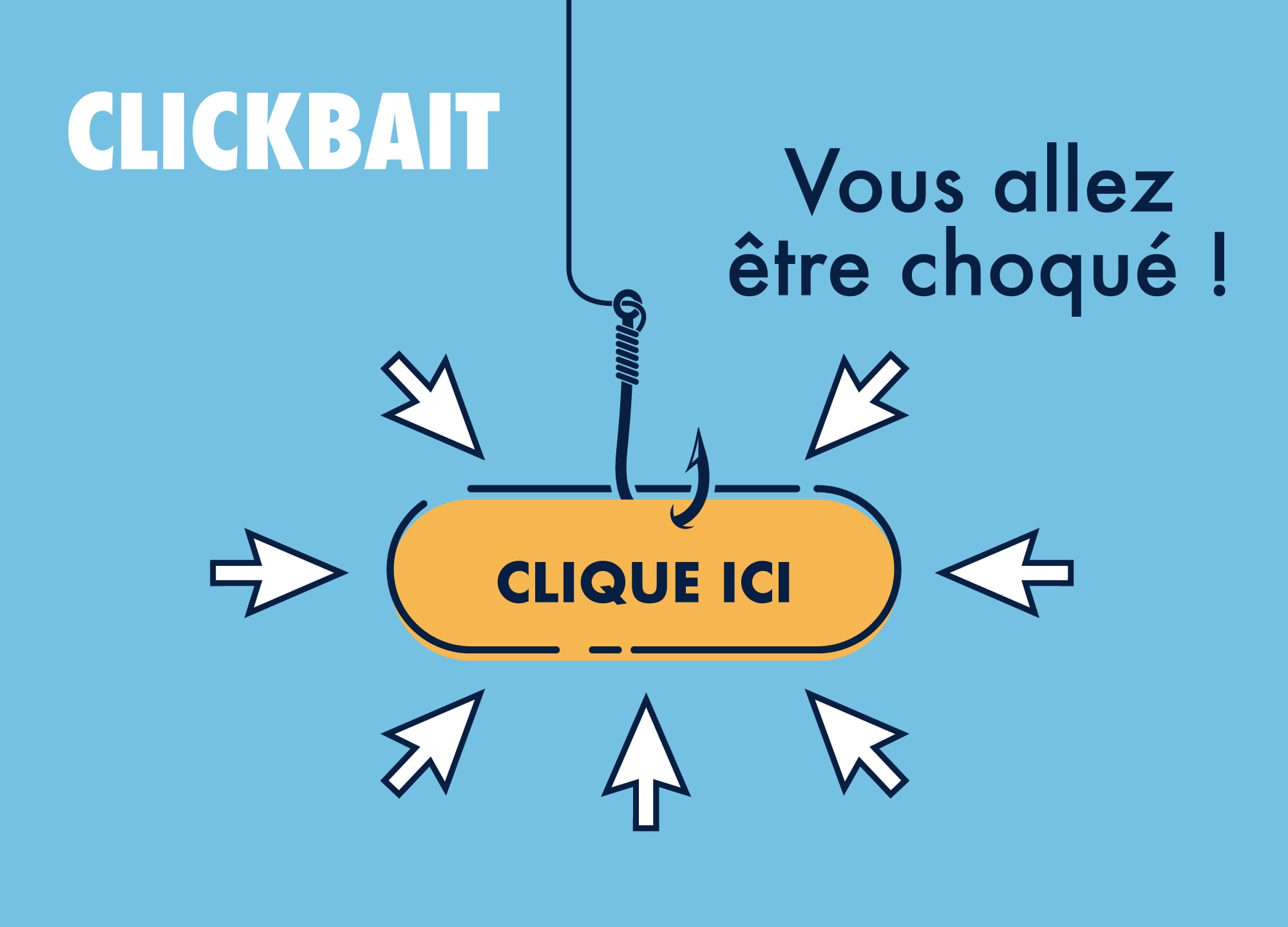Clickbait, or "click bait", is a common technique used on the internet to attract the attention of users by promising often misleading sensational content. This method is more and more spreading, manipulating public opinion and generating advertising revenues by exploiting the curiosity of Internet users.
What is clickbait?
These titles, often exaggerated or misleading, promise sensational revelations but generally provide inexpensive content. The main objective is to generate traffic on websites to increase advertising revenues.
The sites using clickbait exploit human curiosity and emotions to maximize clicks. Although this is effective in attracting attention, this practice contributes to the dissemination of low quality content and, in some cases, to disinformation.
Clickbait techniques used in Africa
Clickbait is increasingly used in Africa, particularly in political, sporting and economic contexts.
In the political field:
in electoral period, it is not uncommon to see titles such as "the president involved in a scandal of major corruption" or "electoral fraud: the evidence revealed". These articles are often built from rumors or unaccussional information, seeking to sow confusion and polarizing public opinion.
In sport:
football enthusiasts, in particular, are often confronted with misleading titles such as "player X signs a record contract with Y" or "internal crisis within the national team". These articles exaggerate or invent information to capture the attention of enthusiasts, without providing reliable content.
In the economy:
titles such as "how to become a millionaire in a week" or "Discover the secret tip to double your income" proliferate. These articles often hide scams or doubtful financial advice, particularly targeting young people looking for rapid solutions to improve their financial situation.
How to protect yourself from clickbait?
To protect yourself from clickbait, it is important to recognize the typical signs. Exaggerated or sensational titles, promising "incredible" revelations or "secrets", are often misleading. Be careful before clicking on this type of content. Then check the source of the article. Confidence sites favor reliable and verifiable information. If a title seems doubtful, check it on platforms like Africa Check to confirm its veracity.
Tools like Newsguard or Clickbait Remover can also filter misleading content, helping you avoid traps. Finally, develop your critical mind. Ask yourself questions: why is this article so catchy? What is it trying to provoke at home? Adopting this approach allows you to better navigate online and avoid clickbait traps.
Clickbait is an omnipresent phenomenon online, especially in Africa, where it is used to manipulate public opinion in political, sporting and economic fields. It is crucial to educate Internet users to recognize these techniques and use verification tools to avoid falling into the clickbait trap.









